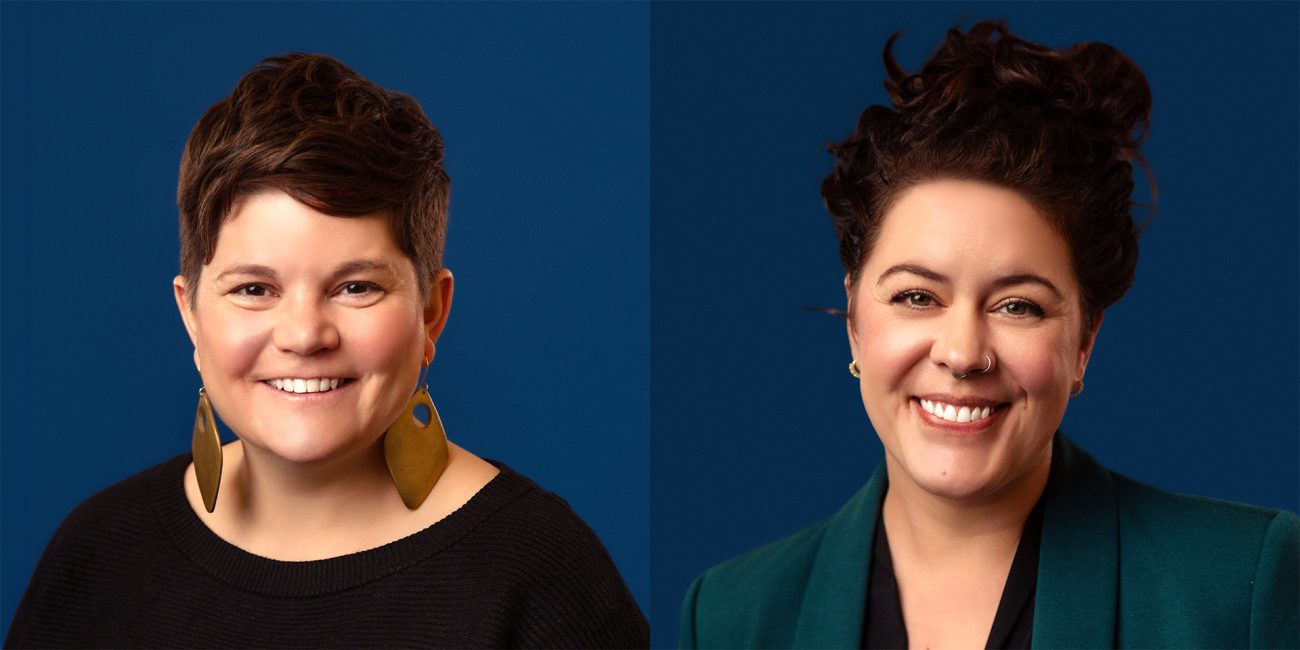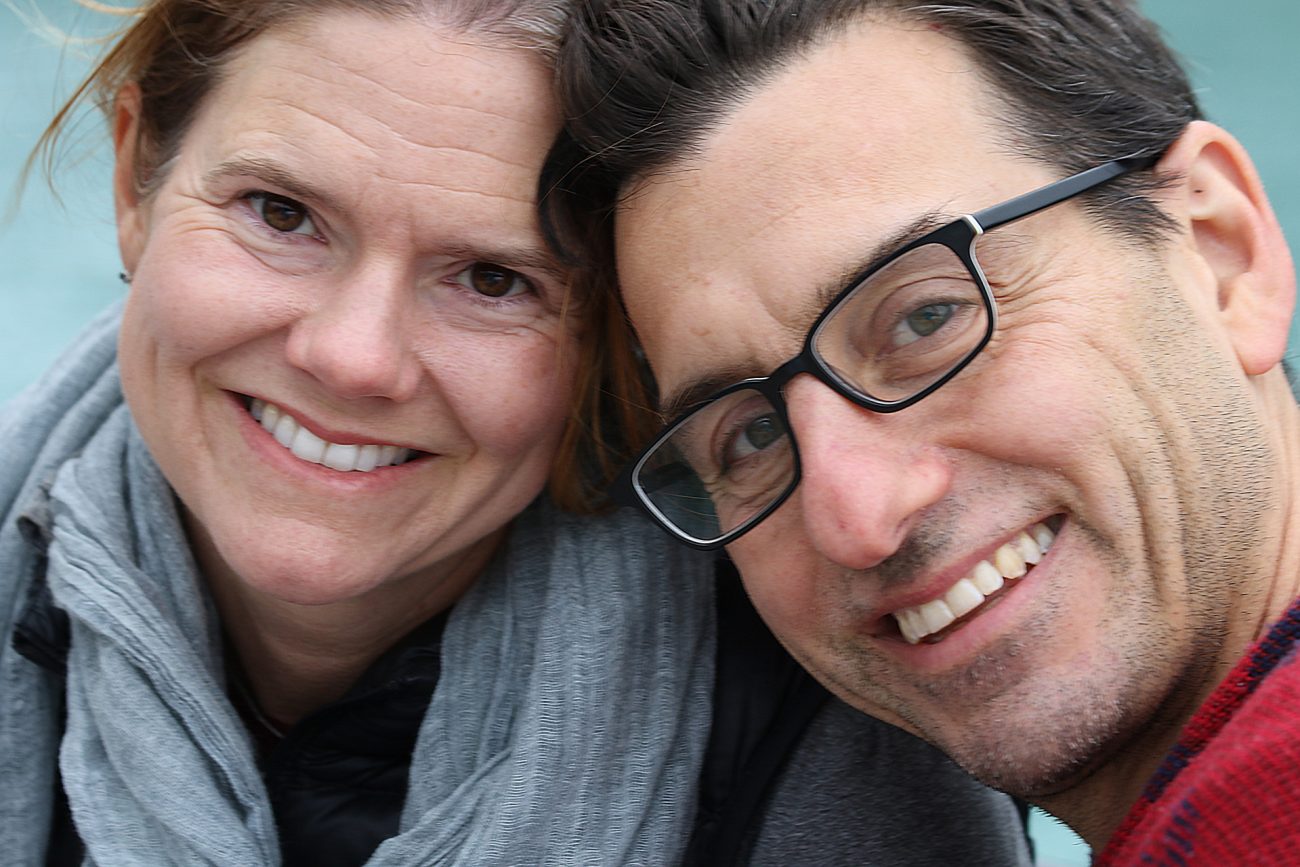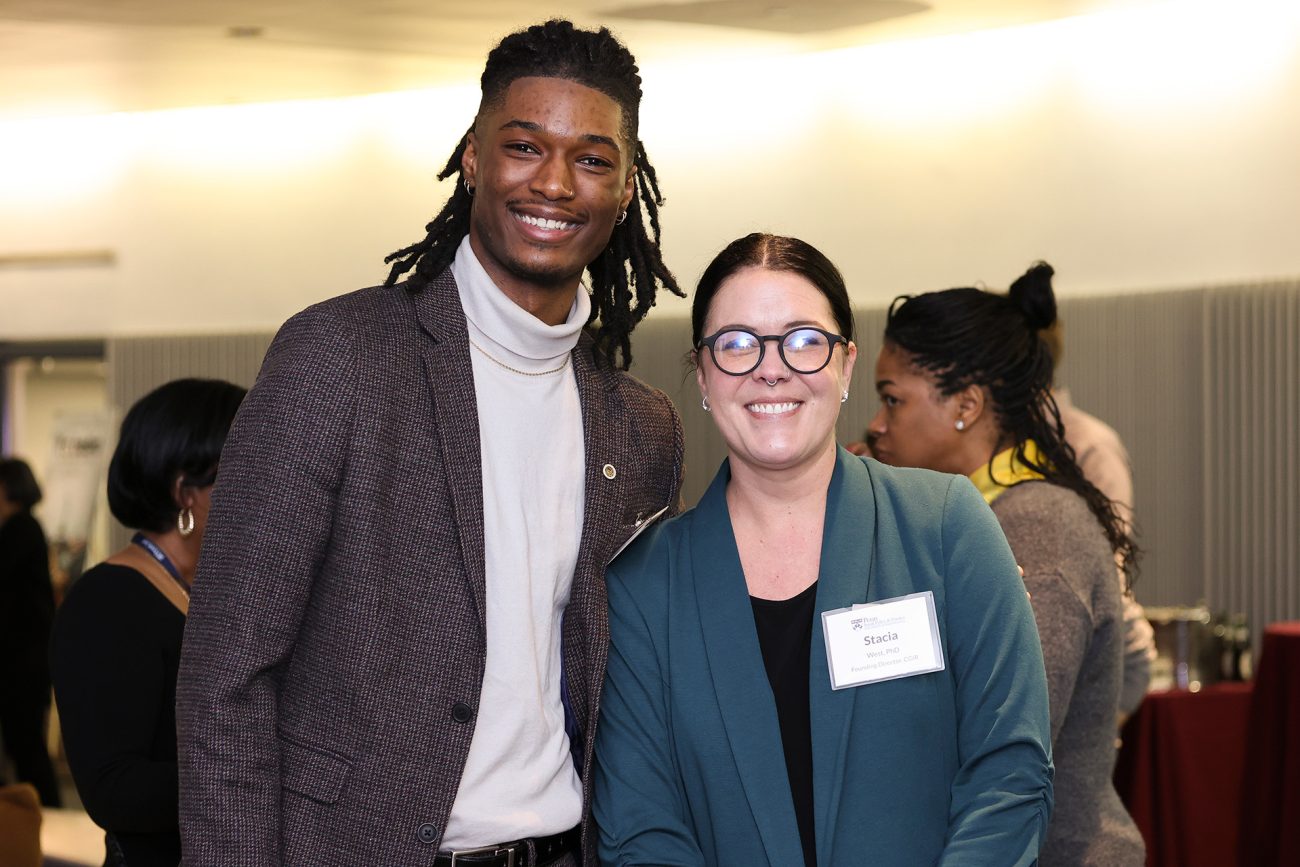“You can’t budget your way out of poverty,” says Amy Castro, SW’04, a founding director of the Center for Guaranteed Income Research (CGIR) at the School of Social Policy & Practice (SP2).
Confronting Economic Inequality with Cash
The Center for Guaranteed Income Research is studying no-strings-attached cash and offering data-driven solutions for a better future
A self-described “accidental academic,” Castro grew up in Scranton, Pennsylvania with working class parents. Her life’s work in economic mobility and guaranteed income is personal—she previously received government assistance.

CGIR was launched in 2020 during The Power of Penn Campaign. It was designed as a place for experts to conduct applied research that advances an understanding of cash transfer programs, adds to economic mobility scholarship, and furthers efforts to create modern policies around income inequality and economic justice. “At SP2, we are dedicated to the passionate pursuit of social innovation, impact, and justice,” says Dean Sara S. Bachman. “One of the ways we demonstrate that commitment is through the groundbreaking work happening at CGIR, where the team is exploring the power of guaranteed income to create opportunity and personal advancement. I am immensely proud to help advance this necessary, impactful scholarship.”
In 2014, Castro met Stacia West, an associate professor at the University of Tennessee’s College of Social Work, while they were researching the racial and gender wealth gap that emerged after the 2008 housing crisis. A few years later, they reconnected while working together in Stockton, California on the nation’s first mayor-led guaranteed income project. The project—the Stockton Economic Empowerment Demonstration (SEED)—disbursed $500 monthly payments to over 100 residents of Stockton and was inspired by West’s work with Dolly Parton, who provided guaranteed income payments to 900 families who lost their homes in the Tennessee wildfires.
“At that point, no one was talking about guaranteed income, but I had been studying predatory finance in communities of color for years,” says Castro. “I was really angry about what the failures of the market were doing to many women and Black and Brown communities.”
Americans were beginning to reimagine what a social safety net should look like as the pandemic hit in early 2020, just as the data collection phase of the SEED study was unfolding. Millions of people were struggling, and the idea of financial safeguards for all began to gain more public support. At the time, Castro and West co-founded the Center for Guaranteed Income Research at SP2 to organize and coordinate studies across the United States.
Nearly 200 pilot programs are currently underway; the results are being collected and analyzed as part of the Center’s “American Guaranteed Income Studies” project, which has shown that guaranteed income leads to improved physical health, steadier monthly income, less anxiety and stress, and an easier time finding full-time jobs for participants. To date, over $100 million in unconditional cash has been disbursed and philanthropic support has bolstered guaranteed income projects in places like Los Angeles, New Orleans, Minnesota, and many others.

Holly Fogle, C’96, W’96, a social entrepreneur and philanthropist, is a big believer in the work happening at CGIR. She and her husband, Jeff Lieberman, ENG’96, W’96, gave generously to help launch the Center in 2020. They were especially impressed by the depth of experience that Castro and West brought to their data-driven research. “It was important to us to be aligned with researchers who have a strong track record in the guaranteed income research space,” says Fogle. “We really like that the Center can balance academic rigor with the reality that their evidence has real-world implications.”
Sharon Dailey, V’79, a retired veterinarian, was also moved to give to guaranteed income. “I was looking for a way to support a worthy cause and honor my recently deceased partner of 39 years, Pat, who was always a champion for the underprivileged,” says Dailey. Castro and Dailey connected at a Jersey Shore diner during the pandemic and made a plan. A small, guaranteed income pilot in West Hollywood—an area with a large low-income, aging LGBTQ+ population—was about to begin. Dailey offered to cover the funding gap that Castro needed to begin giving out cash to participants.

Today at CGIR, there are about 50 full- and part-time staff members, many of them graduate researchers who are evaluating large-scale, multi-site pilots. Among those staffers is Matthew Encarnación, SPP’24, a Social Justice Scholar at SP2, who has been working at CGIR since he arrived at Penn. In between classes and community organizing, Encarnación has done essential work for the Center, ensuring participants were paid for completing surveys and coding interview transcripts. Before he leaves Penn, Encarnación is headed to a CGIR pilot site for the first time. “I’m going to L.A. to assist with participant interviews,” he says. “I’m excited to be on the ground and meet some of the people who are benefitting from these programs.”
Across states and political divides, many proponents of guaranteed income are seeing the benefits that can come from offering a monthly cash stipend to people in need. “Time is a luxury good,” says Castro. “We’re seeing people put the time they’re getting back into their families, and that’s the ultimate gift.”
CGIR is poised to provide critical support to scale this ambitious endeavor nationwide. “I don’t think we’ll wake up in five years to find a universal basic income,” says West. “But I would like to see an improvement to the existing social safety net so that everybody has a fair shot at a healthy, happy life.”
To learn more about supporting the Center for Guaranteed Income Research, contact Kristen de Paor, SP2 Associate Dean for Institutional Advancement, via email or at (215) 898-5518.






